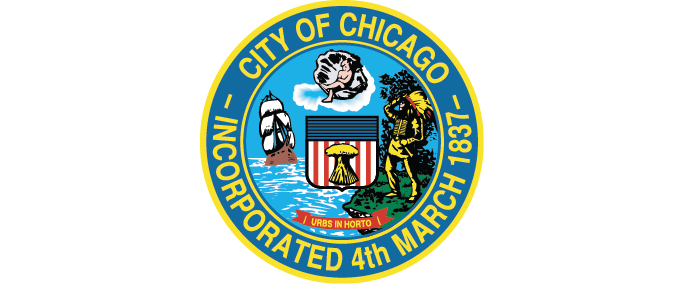This report is the product of an international effort between Mayor Rahm Emanuel of Chicago and Mayor Anne Hidalgo of Paris to advance the discussion over how to transform neglected urban waterways.
Urban waterways are natural centers of gravity for cities around the world. Today, however, many old industrial waterfronts and other neglected urban waterways are ripe for new design, development, and purpose. Mayors worldwide are rethinking how best to harness the unique, underutilized strategic value their rivers, canals, and harbors can present to their cities. Through strategic planning, multisector collaboration, and long-term visions, cities can lead the transformation of neglected waterways into mixed-used assets that address a number of local priorities and play a role in solving major global challenges.
To share best practices and ideas for tackling the challenges cities are all facing, Mayor Rahm Emanuel of Chicago and Mayor Anne Hidalgo of Paris agreed to cohost a Mayors’ Forum on Urban Waterways in Chicago on March 13, 2017. Seventeen cities from five continents participated. This report highlights the breadth of key themes and findings from their discussion.
Advancing Local Priorities in a Global Context
Cities globally are grappling with similar challenges that waterway urban development projects can help address. When cities pursue projects in the context of global trends, however, the cumulative impact of individual, localized investments can represent an impressively scaled form of global action. Furthermore, projects will draw their fullest value when designed to specifically advance gains in mutually reinforcing ways across their larger urban system rather than in isolated contexts. Cities should plan projects to generate the following mutually reinforcing outcomes through urban waterway investments:
- Support economic development. Economic vitality is a lifeline of cities. Urban waterway investments contribute to economic development through private investments, property tax benefits, increased consumer spending, new job creation, and increased visibility and city competitiveness.
- Protect the environment. Cities are on the frontlines of climate change. Urban waterway projects can serve to redevelop brownfield sites, restore ecosystems, maximize public and private reclamation resources, improve resilience, and decrease the city’s carbon footprint.
- Promote equity and social inclusion. Gentrification, rising costs of living, and segregation are transforming today’s cities into hotbeds of inequality. Urban waterway investments can promote inclusion through neighborhood reinvestment, equitable access, diverse offerings, and social interaction and cohesion.
- Improve public health and recreation. Increased urbanization and densification is dramatically reducing open and green spaces, which are essential to public health outcomes and community well-being. Redeveloped urban waterways can create open spaces, improve public health, and promote recreation, such as sporting events and active lifestyles.
Delivering Successful Urban Waterway Projects
Urban waterfront redevelopment efforts are complex and challenging, but that complexity does not mean they should not be undertaken. Instead, they should be informed by considered analysis, state-of-the-art best practices, and smart policy deployment to ensure successful outcomes. The successful delivery of urban waterway projects requires that cities explicitly consider how best to carry out the following actions in ways that correspond to local needs and context:
- Understand the ownership arrangements of waterways and adjacent land. Complex ownership arrangements and jurisdictions affect most urban waterways. Cities can act as brokers exploring innovative ways for diverse stakeholders to collaborate with one another to make waterway projects a reality despite complicated landscapes of ownership and authority.
- Develop models for long-term project governance and financing. Long-term time horizons of major projects complicate project governance and financing needs. Accordingly, city leaders should ensure that the project is governed, overseen, and championed by a broad range of stakeholders.
- Establish a clear paradigm of public benefit. Urban development projects are rarely uncontroversial. City leaders should outline clear public benefits from the outset to ensure understanding of the project’s value and deploy policy tools that promote equity and inclusion.
- Engage the public in the planning and implementation processes. Early efforts to engage the public will lead to better and more inclusive overall design and less political conflict.
Changing the Conversation Around Strategic Urban-Development Investments
Any large-scale urban-development investment, regardless of whether it takes shape along a waterway, has the potential to deliver transformative effects and benefits for a city as a whole. But the comprehensive value and impact of these projects—especially those that take shape over long periods of time as component parts that build on one another—is often not fully understood at the outset of such projects. As a result, the potential value and impact of these projects are not fully communicated to the public, to the private sector, and to other levels of government, generally to the detriment of enthusiasm and financing prospects for any given project. To change the conversation about valuing and investing in strategic urban-development projects and to create a macro enabling environment conducive to those projects, cities need to pursue the following actions:
- Deploy measurement tools and work with the private sector to understand economic returns. Routinizing the comprehensive assessment of dollar-for-dollar returns from long-term strategic urban-development projects is a prerequisite for establishing such projects as an asset class to invest in.
- Establish new collective relationships with diverse investment actors. Cities can work together to establish new lines of communication and standards of collaboration with nontraditional, institutional investment actors, including sovereign wealth and public pension funds interested in generating stable returns over long periods of time.
- Embrace new mayoral roles as advocates for urban prosperity. Mayors are responsible for delivering results for their local populations, a job that increasingly requires them to advocate for the cause of urban prosperity in front of diverse audiences, the private sector, and other levels of government.
- Coordinate and share best practices with global peers. When mayors engage with each other to glean best practices that can be applied to local urban challenges, they also encourage a coordinating effect of global urban leadership that drives local action in support of solving critical global challenges. This process is critical to broadening understandings of how strategic urban-development investments can and should be valued.




